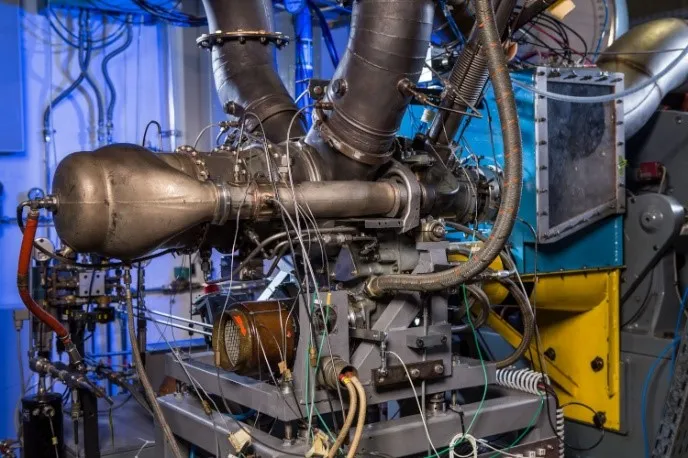Small Aero Engines – Performance and emissions using Drop-In Fuels
Funded by Munich Aerospace e.V.

Short Description
Alternative fuels can be used to achieve a rapid reduction in the climate impact of aviation, In addition to electric aircraft engines or the use of hydrogen as a fuel.
In the project, funded by Munich Aerospace e.V., the behavior of a small gas turbine with regard to performance, engine health, and the resulting emissions will be investigated using alternative fuels. The following questions are to be examined in more detail:
- What is the fuel-specific impact on engine operability?
- What changes in engine performance are seen in steady-state and transient operation?
- How do different drop-in fuels, sustainable aviation fuels, or eFuels affect emissions?
Regarding engine emissions, both gas phase and particulate emissions are considered.
The experiments will take place on the institute's own Allison 250 C20B helicopter engine. This turboshaft engine is very compact, and the individual components are easily accessible, facilitating adjustments and operation. This makes it possible to integrate new measurement technology easily. With regard to the fuel system, it is possible to switch quickly between regular Jet A-1 feed and alternative fuel feed.
More details about the Allison gas turbine test stand can be found here.
Aim / Objective
- Demonstrate the impact of alternative fuels on steady-state and transient engine operations.
- Investigation and demonstration of the influence of alternative fuels on gaseous and especially particulate emissions.
- Determination of an alternative fuel, which is optimized with regard to maximum energy release and minimum pollutant emission

